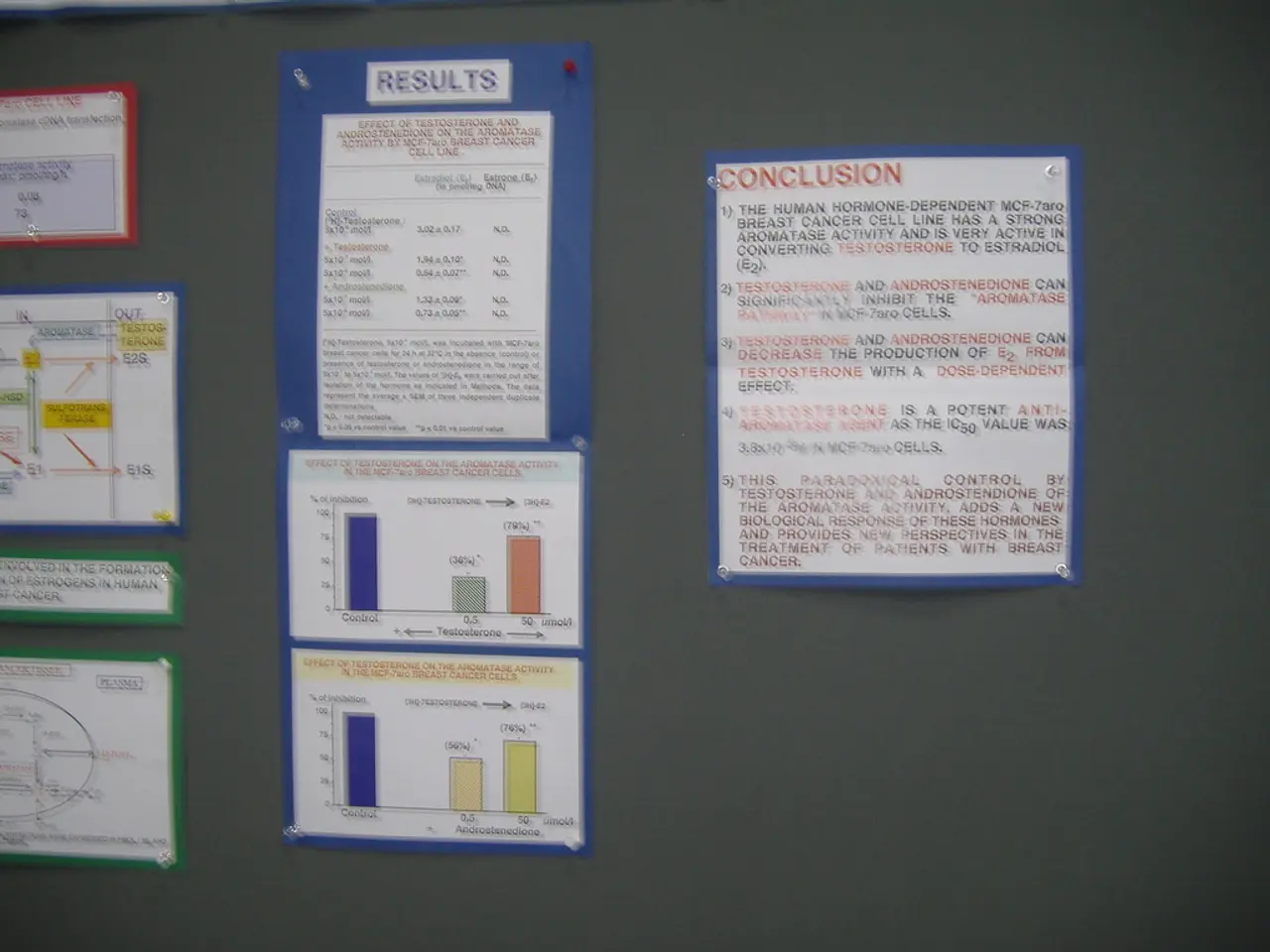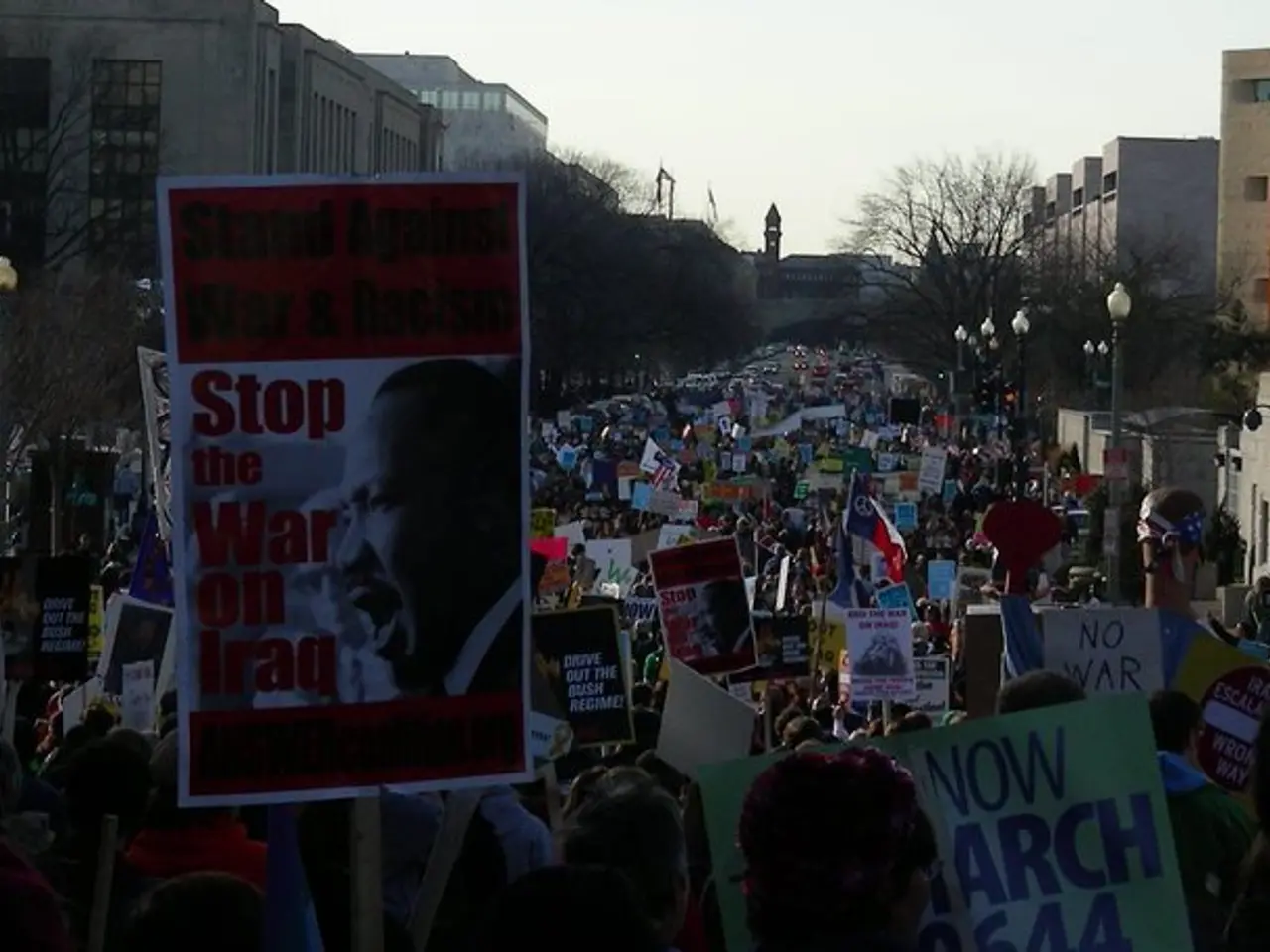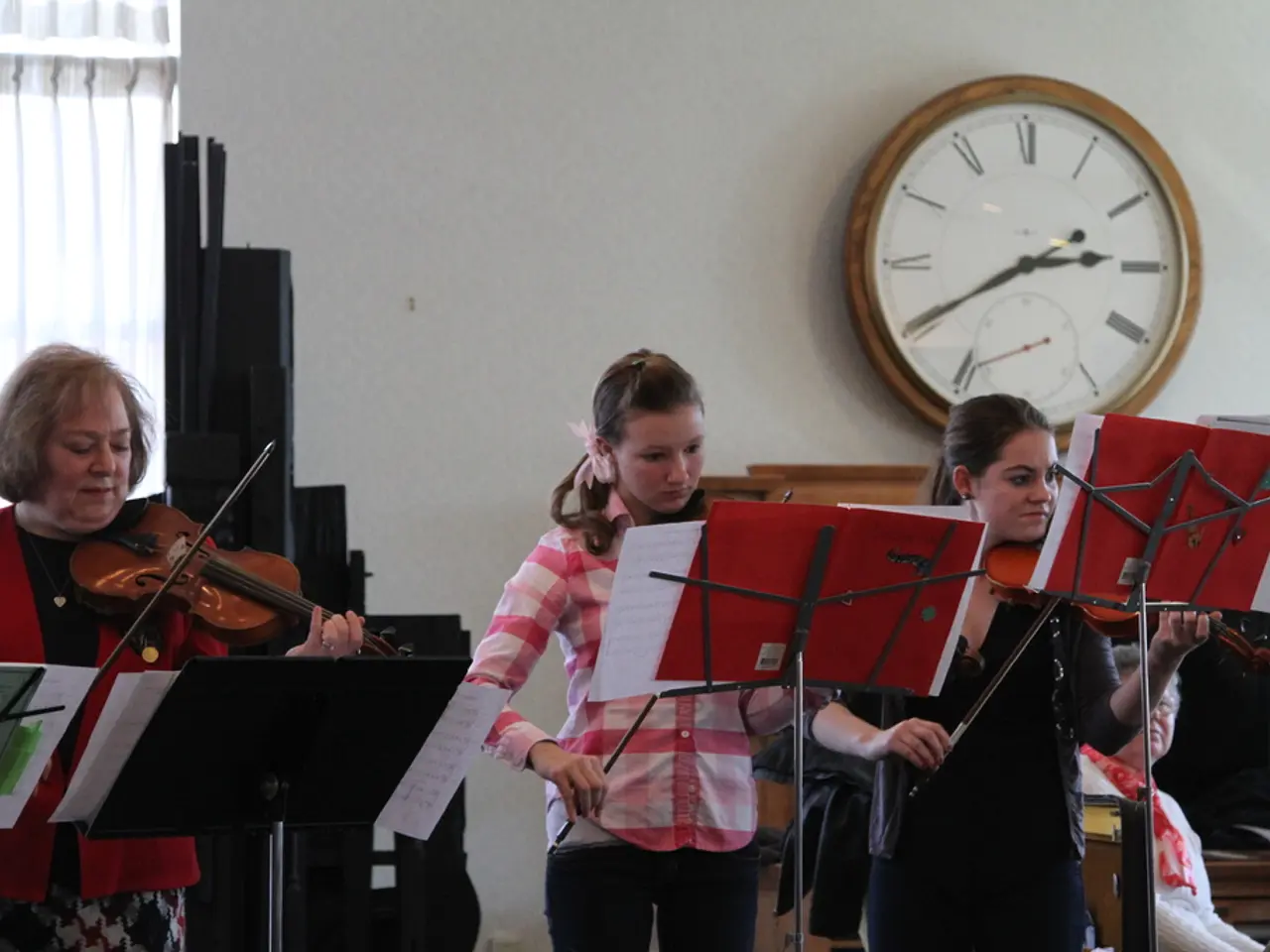Separatist faction seeks annulment of Alberta referendum question examination
Alberta Separatism Referendum Faces Legal Challenge
A legal challenge has been launched against the proposed Alberta separatism referendum, with the Alberta Prosperity Project applying to the Court of King's Bench to strike the referendum question. The question, which asks Albertans if the Province of Alberta should become a sovereign country and cease to be a province in Canada, was approved by Alberta's chief electoral officer, Gordon McClure, last week.
The Alberta Prosperity Project argues that judicial scrutiny is premature as there's no guarantee the question will gather enough signatures or pass a referendum. If the proposed question is approved, the Alberta Prosperity Project would need to collect 177,000 signatures in four months to get it on a ballot.
Meanwhile, efforts to gather signatures for the competing question, put forward by former Progressive Conservative deputy premier Thomas Lukaszuk, have already started. This competing question asks if Alberta should declare an official policy that it will never separate from Canada. The competing question needs 300,000 signatures in 90 days to get on a ballot, as it was approved before new provincial rules with lower signature thresholds took effect.
The legal proceedings are being led by Jeffrey Rath, a lawyer for the Alberta Prosperity Project. Rath argues that asking the question doesn't violate the Constitution, as constitutional issues would only arise if the referendum passed and negotiations began on Alberta separating from Canada.
Provincial legislation has been adapted to ease the signature threshold for referendums, though only one referendum on substantially similar questions can occur at a time. If signatures meet the threshold and the referendum passes, further constitutional negotiations and processes would be required.
Alberta's Justice Minister, Mickey Amery, intends to make submissions in support of the proposed question, while former deputy premier Thomas Lukaszuk is also looking to make submissions against the competing question. Multiple groups, including the Athabasca Chipewyan First Nation, are planning to make submissions in opposition to the proposed question.
The constitutional implications of an Alberta separatism referendum are significant and complex, involving potential conflicts with the Canadian Constitution, including the Charter of Rights and Freedoms and treaty rights recognized under Section 35. The courts play a key gatekeeping role by ensuring that any referendum question complies with Canada’s constitutional framework before the process proceeds.
The judge is unlikely to make a decision on the application today. Athabasca Chipewyan First Nation Chief Allan Adam signed the petition for the competing question outside court on Thursday. The outcome of this legal challenge could significantly impact the future of Alberta's political landscape.
[1] Alberta Referendum Act, RSA 2000, c A-22 [2] Alberta v Alberta Prosperity Project, 2021 ABQB 889 [3] Alberta Elections Act, RSA 2000, c A-21 [4] Constitution Act, 1982, being Schedule B to the Canada Act 1982 (UK), 1982, c 11 [5] Section 35 of the Constitution Act, 1982, recognizes and affirms the existing Aboriginal and treaty rights of the Indigenous peoples of Canada.
- The ongoing legal challenge against the Alberta separatism referendum highlights the intricate interplay between policy-and-legislation, politics, and general-news, as the Court of King's Bench examines the validity of the question asked in the proposed referendum.
- The Alberta Prosperity Project and other groups, such as the Athabasca Chipewyan First Nation, have emphatically stated their views on the proposed question and supported the role of the courts in ensuring that any referendum question adheres to Canada's constitutional framework, further underscoring the critical intersection of these key concepts.





